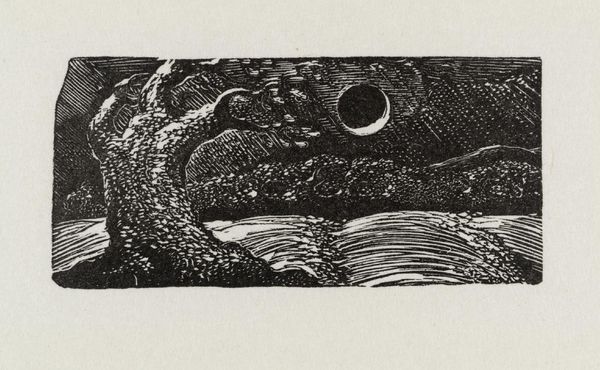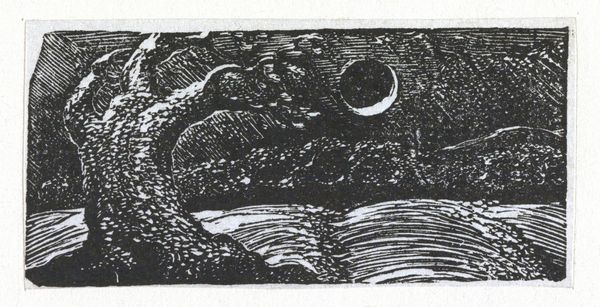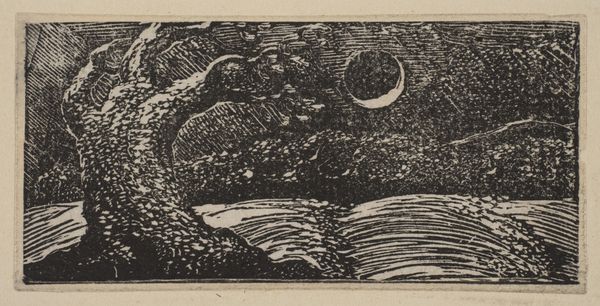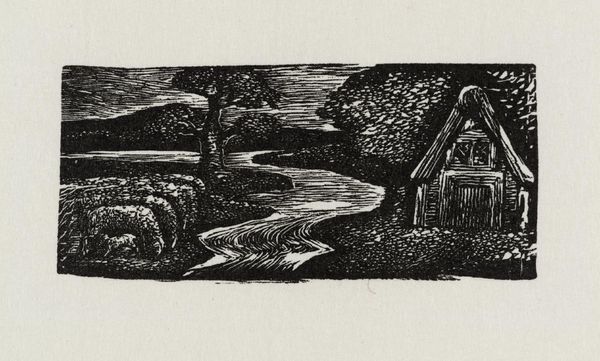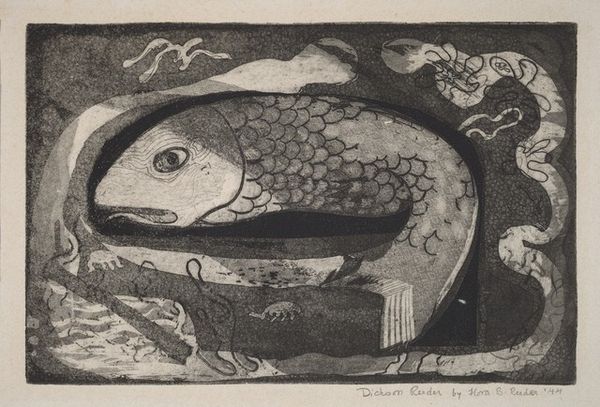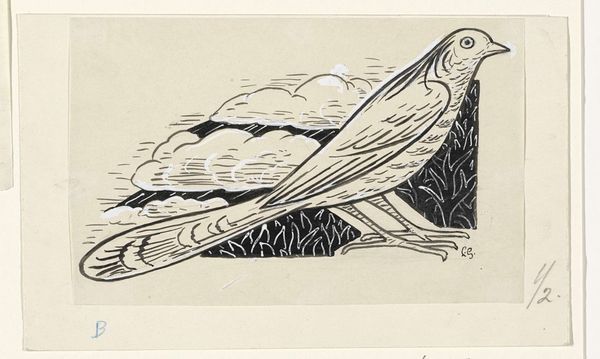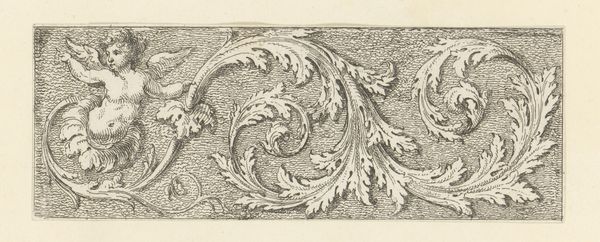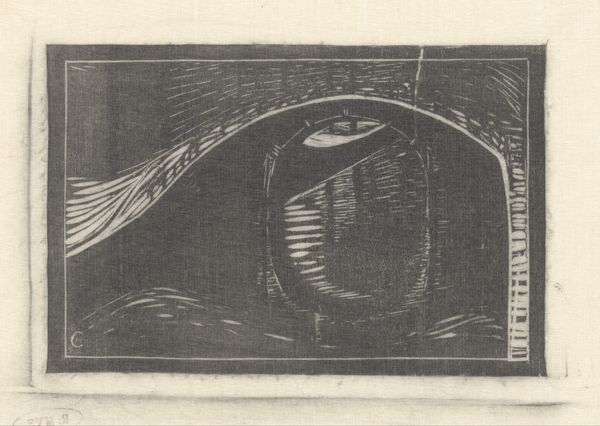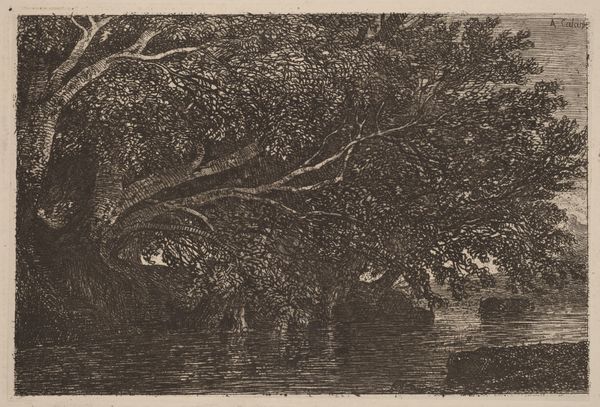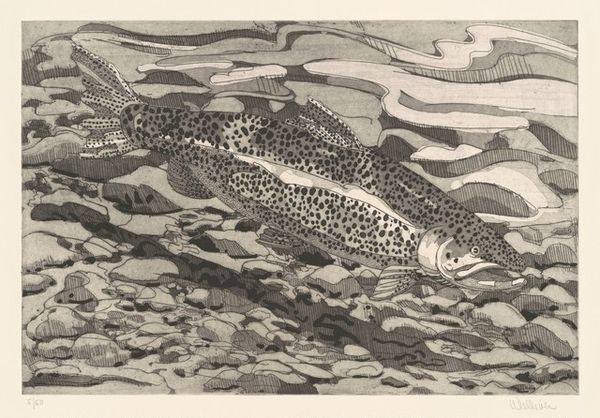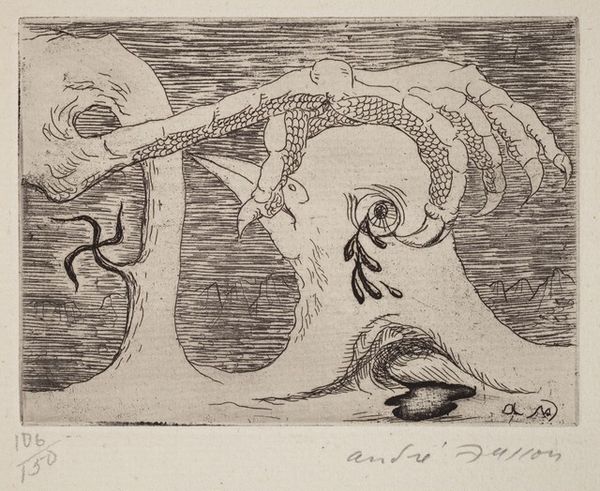
Dimensions: image: 34 x 73 mm
Copyright: CC-BY-NC-ND 4.0 DEED, Photo: Tate
Curator: This is William Blake's small wood engraving, "The Blighted Corn," currently residing in the Tate Collections. The date of its creation is unknown. Editor: Stark. The high contrast between the dense blacks and negative space creates a dramatic, almost apocalyptic, feel. Curator: Blake was deeply concerned with the cycles of nature and decay. The blighted corn likely symbolizes spiritual or societal corruption. A visual metaphor for a fall from grace. Editor: The image looks so tactile. I wonder about the actual physical labor involved in carving such intricate details from wood, especially at this scale. Curator: The moon, often a symbol of the feminine and cyclical, is strangely dark here, almost eclipsed. Perhaps it is meant to signify a loss of intuition or feeling. Editor: It's fascinating how Blake transforms a seemingly simple pastoral scene into something so heavy with meaning through his particular choice of medium and technique. Curator: Indeed. The image is a powerful reminder of the darker aspects of the human condition. Editor: Yes, and to see this level of artistic skill, applied using such a rudimentary technique, feels so intimate and direct.
Comments
tate 10 months ago
⋮
http://www.tate.org.uk/art/artworks/blake-the-blighted-corn-t02120
Join the conversation
Join millions of artists and users on Artera today and experience the ultimate creative platform.
tate 10 months ago
⋮
Virgil’s First Eclogue is about farmers who had been dispossessed as a result of the civil war in Italy after Julius Caesar seized power in 49BC. Thenot (Tityrus) has retained his farm. Meliboeus (Colinet) has lost his. Thenot agrees that Colinet was born in a ‘hapless…time’. The illustration of Blighted Corn echoes Virgil’s description of the state of chaos in the land. In his hymn Jerusalem Blake sings for those dispossessed of their ‘own Imaginations’ as he describes them in the Preface to Milton. Gallery label, December 2004
